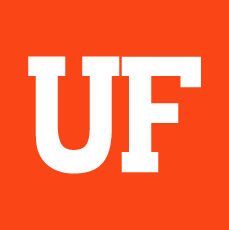Growth year planning
Over 60%
of first-time medical school applicants apply after their senior year – or later.
78%
of the 2024 UF College of Medicine Student Cohort had at least one growth year.
Many pre-professional students are choosing to take at least one year off after they graduate.
Having a growth year between undergraduate studies and beginning professional school is often beneficial for applicants and does not hurt your chances of admission—so long as you take the opportunity to continue to strengthen your application. It allows time to gain additionallife experiences, continue volunteering, or pursue non-academic interests.
Many students ask what they should do during their time off. To create the best plan for you, it’s essential to evaluate yourself as an applicant and determine if you have any weaknesses in your preparation. Addressing any weaknesses will make you a stronger applicant when you apply.
See the advice below for ideas on creating your growth year plan:
Academic Options
Take Additional Undergraduate Science Courses
If you did not take many additional upper-level science courses while earning your degree you may enroll in any university that allows “post-bac” or “non-degree” status and take additional upper-level science courses, or earn a second bachelor’s degree in a science. major. Please discuss your plans with an advisor at the school you wish to attend. UF does not admit students to post-bac status to complete a second degree (except for the UF Online program). Many professional schools prefer traditional based classroom settings over online courses. UF may limit the courses available to non-degree seeking students, but some science courses are available.
Post-baccalaureate Programs
If you have already completed the prerequisite courses, you have multiple Post Baccalaureate options if you need to improve your science GPA. If you pursue one of these options, be sure to also maintain your involvement in the community in order to show a continued commitment to the profession.
If you have not completed the pre-requisite courses or completed them more than three to five years ago (depending on the medical schools), consider doing a ‘career changer’ post-bac program. For post baccalaureate program options, please search for programs on the AAMC site.
Special Master’s Programs (1-2 years)
If you have already taken multiple science courses beyond the prerequisites or if you prefer graduate level coursework, you can apply to a Special Master’s Program (SMP). Special Masters Programs are 1-2 year programs designed for students who want to improve their science GPA for admission to a health professional school. They are usually non-thesis based programs. In Special Masters programs you:
- Take classes which are the same or approximate to those taken by first year medical students.
- Must have earned a BS/BA degree. Minimum GPA and MCAT (or GRE) may be required. Letters of recommendation are usually required.
- May receive assistance in obtaining additional clinical experience.
- May get MCAT prep and personal statement essay writing help.
You can search for programs on the AAMC website (search for “academic record enhancers”) or see the list of programs offered in Florida below.
Florida Programs
- Barry University – Master’s of Biomedical Sciences Degree
- FIU Graduate Certificate in Molecular and Biomedical Sciences
- Florida Atlantic University
- Lake Erie College of Osteopathic Medicine
- Nova Southeastern University – Master’s of Biomedical Science
- University of South Florida (USF) – Master’s in Medical Sciences
Traditional Masters Programs (2-3 years)
Traditional Masters Programs are a good option for students who have an interest in research or a career in science as a backup to professional school, or if you need additional time to improve your GPA. Most programs are 2-3 years in length and include research and thesis requirements. Minimum GPA requirements, GRE scores, and strong letters of recommendation are typically required.
Master’s programs in non-science areas (Public Health, Healthcare Administration, Business, etc.) can complement medical programs but are not recommended for students who are trying to improve their science GPA. Below are some options for programs in Florida, however, this is not an exhaustive list. Please see university websites for additional program options.
Florida Programs
- Barry University – Master’s Degree in Biomedical Science (Research Option)
- Florida Atlantic University (FAU) – Master’s Degree in Biomedical Science
- Florida Institute of Technology (FIT) – Master’s of Science in Cell and Molecular Biology
- Forensic Medicine
- University of Florida (UF) – Master’s in Medical Sciences. Contact: MGM-GradEd@mgm.ufl.edu for more information, or phone 392-3132.
- Master’s of Science in Microbiology and Cell Science
- Shelter Medicine
- University of Central Florida (UCF) – Master’s of Science in Molecular Biology
- University of South Florida (USF) – Master’s of Science in Cell, Molecular and Microbiology
- Veterinary Forensics
- Wildlife Forensics
These programs may be ideal for students who may be undecided or not yet fully prepared for vet school or medical school.
Non-Academic Options
If you don’t need to improve your GPA, you have many other options during your growth year(s). Many students work during this time and continue service activities as volunteers. Others choose a formal service program such as Teach for America or the Peace Corp. Students with a strong interest in research may want to look at research internships. Below is just a sample of the many programs available for students looking for growth year opportunities. Ultimately, as long as you continue to demonstrate your interest in the profession and serving others, anything is OK!
Service Opportunities
- Teach for America (2 Years)
- Peace Corps (2 Years)
- Americorps (9-12 months)
- Americorps (10 months)
- Americorps VISTA (1 year)
- City Year (1 year)
- Citizen Schools
